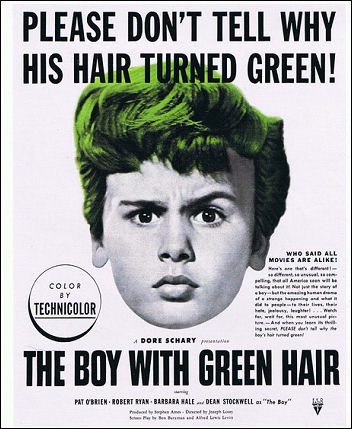I hated Steven Spielberg‘s A.I. when I first saw it nearly 20 years ago, and…uhm, that was the last time. But I don’t need to replenish the hate. For years the A.I. remnants have become more and more fragmentary and insignificant, and I’ve been cool with that. All through the Bush, Obama and Trump administrations, it’s been like “A.I. who?”
But sometime earlier today Nick “Action Man” Clement, a man who’s rarely met a film he hasn’t liked, ran a positive looking-back riff about this “robot version of Pinocchio” (a description favored by Stanley Kubrick when he was thinking about directing it in the ’80s), and suddenly a switch flipped and I saw red.

“Enough With The Kids,” posted on 3.25.09:
I don’t like movies about kids. Not any more. Exceptions will happen, of course, but I don’t give a damn about coming-of-age movies or learning-a-tough-lesson movies or movies about young kids going through an adventure that changes their life and/or has a profound impact. Really, throw all of that shit out.
I’ll tell you one reason why I’m not the only one thinking this. The Great Recession has been scaring the hell out of people, and with everyone getting down to brass tacks and doing what they can to survive parents are realizing that they haven’t done their kids any favors by funding a cut-off, over-indulged fantasy realm for them to live in. That’s what the Wall Street pirates have been doing in a sense since Bush came in and look what happened.
Kids need to grow up and grim up and learn the basic survival skills and disciplines. So enough with the Spielberg-aping films that portray a child’s world as a magical-fantastical kingdom in and of itself that adults might be able to learn something from.
I loved E.T. at first blush, but the last time I saw it I had a moderately hard time. There’s no filmmaker who’s more sentimental, manipulative and emotionally cloying than Spielberg when it comes to under-age characters, and that doesn’t age well.
It’s taken years to realize this, but I think my profound dislike of kid films initially came from the one-two punch of Spielberg’s Hook (’91) and George Lucas‘s The Phantom Menace (’99). (Jake Lloyd‘s performance as Anakin Skywalker was surely one of the most agonizing ever delivered in motion picture history.) Those two left me doubled-over, and then along came Spielberg’s A.I. and I was really done with kids playing lead roles. A ten-year process, that.
I don’t think I’ve been able to really go with a film about a kid (or kids) since. I’m sure I’m forgetting a good kid-in-the-lead film that’s been out over the last seven or eight years.
The Hook-Phantom Menace-A.I. whammy was a bit like my getting sick from eating too much corn bread at my grandmother’s home when I was ten. I wasn’t able to even smell corn bread for two or three decades after that.
This sounds like a joke but we need to go back to the Victorian tradition of kids being seen but not heard and sometimes being taken out to the woodshed when they act up. They need to talk and share about their own lives, of course, but they really do need to ask more questions about the experiences of adults in the real world. They also need to be made to eat on their own on a card table in the den on Thanksgiving and Christmas Day and Easter.
We also need to return to the standards of most early to mid 20th Century movies in which kids were not the primary focus. There were some excellent studio-era films made with kids in the lead, of course. Standouts off the top of my head are The Boy With the Green Hair, The Red Pony, Old Yeller, Night of the Hunter, My Life as a Dog, The Silence, The Sixth Sense , etc. But by and large pre-1980s films stayed away from films in which kids played the lead(s), and we need to get back to that.
And that includes teenagers. I hate teenager movies unless they have characters who remind me of myself when I was 16 or 17, which is to say a kid with at least a semblance of a brain and a semi-developed vocabulary and actual curiosity about the world outside his/her immediate realm. Twilight met that test for me — I believed in that film almost all the way through. Another exception is Risky Business, which I’ll be able to enjoy when I’m 95. Ditto Heathers. But quality-level teenage films are few and far between.
And I don’t want to hear any crap about how I’m getting colorfully cantankerous and channeling Andy Rooney. The ones out there who believe that American culture should celebrate and nurture adolescence as an end in itself are the loonies, not me. The wake-up call of the Great Recession means — or certainly should mean — that the age of the “infantilization of movies” (a term coined by Pauline Kael, as I recall, in an attempt to describe the influence that Spielberg and Lucas began to exert in the mid ’70s) is coming to an end.

